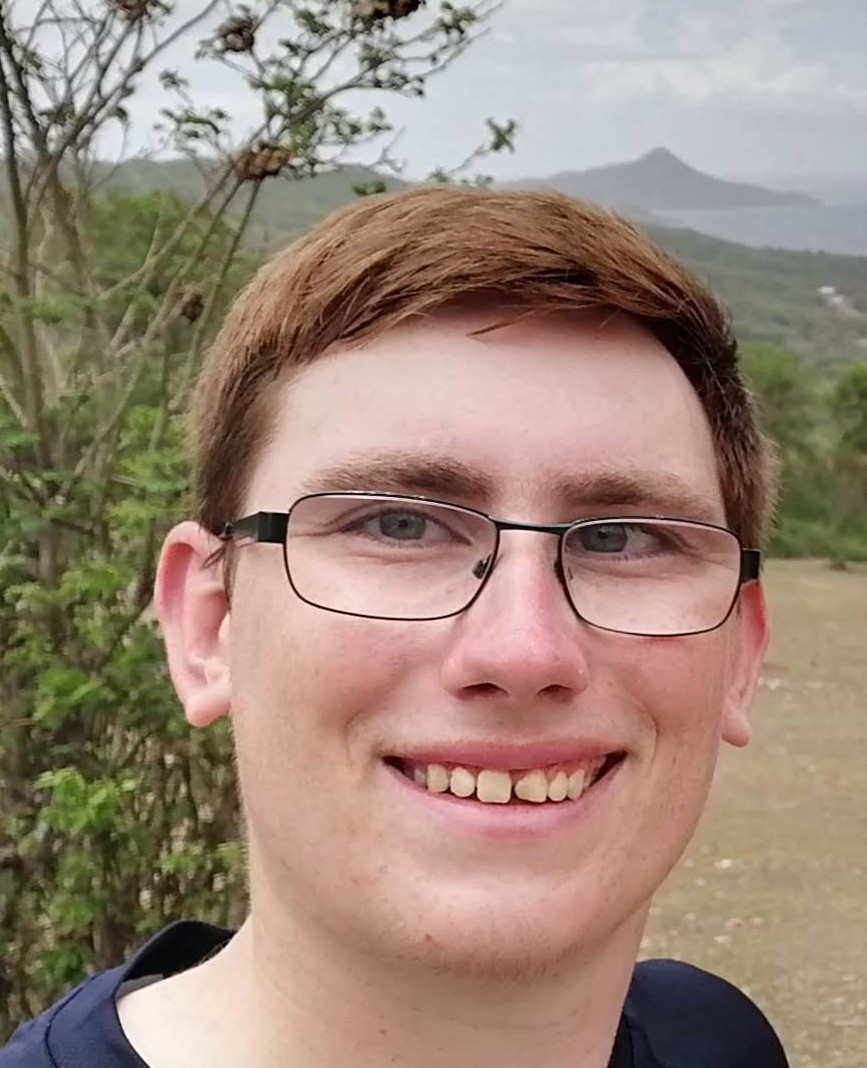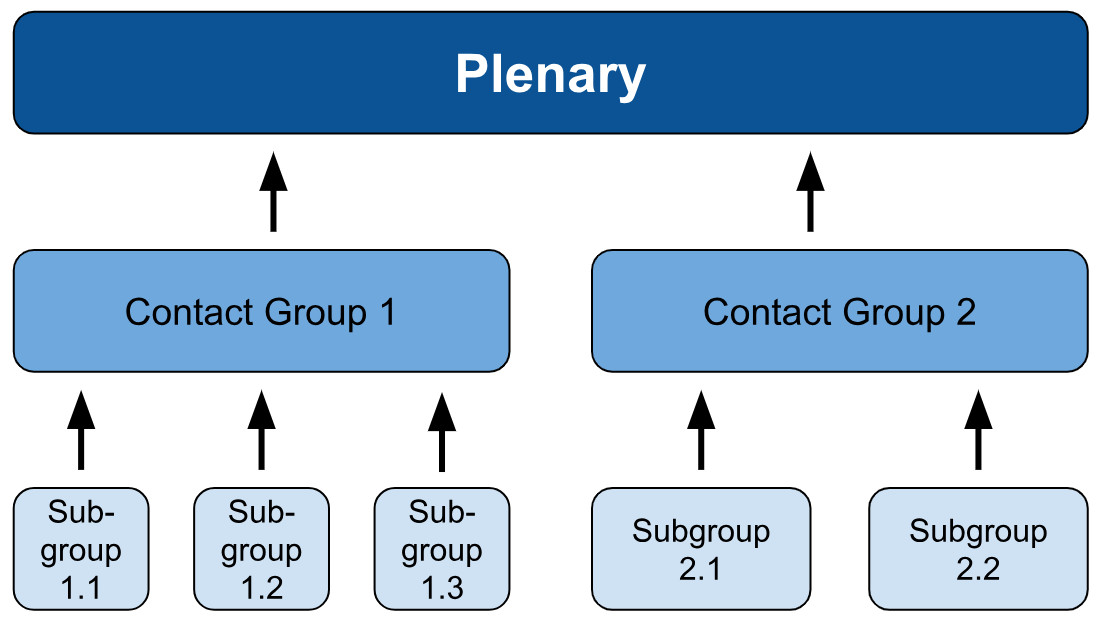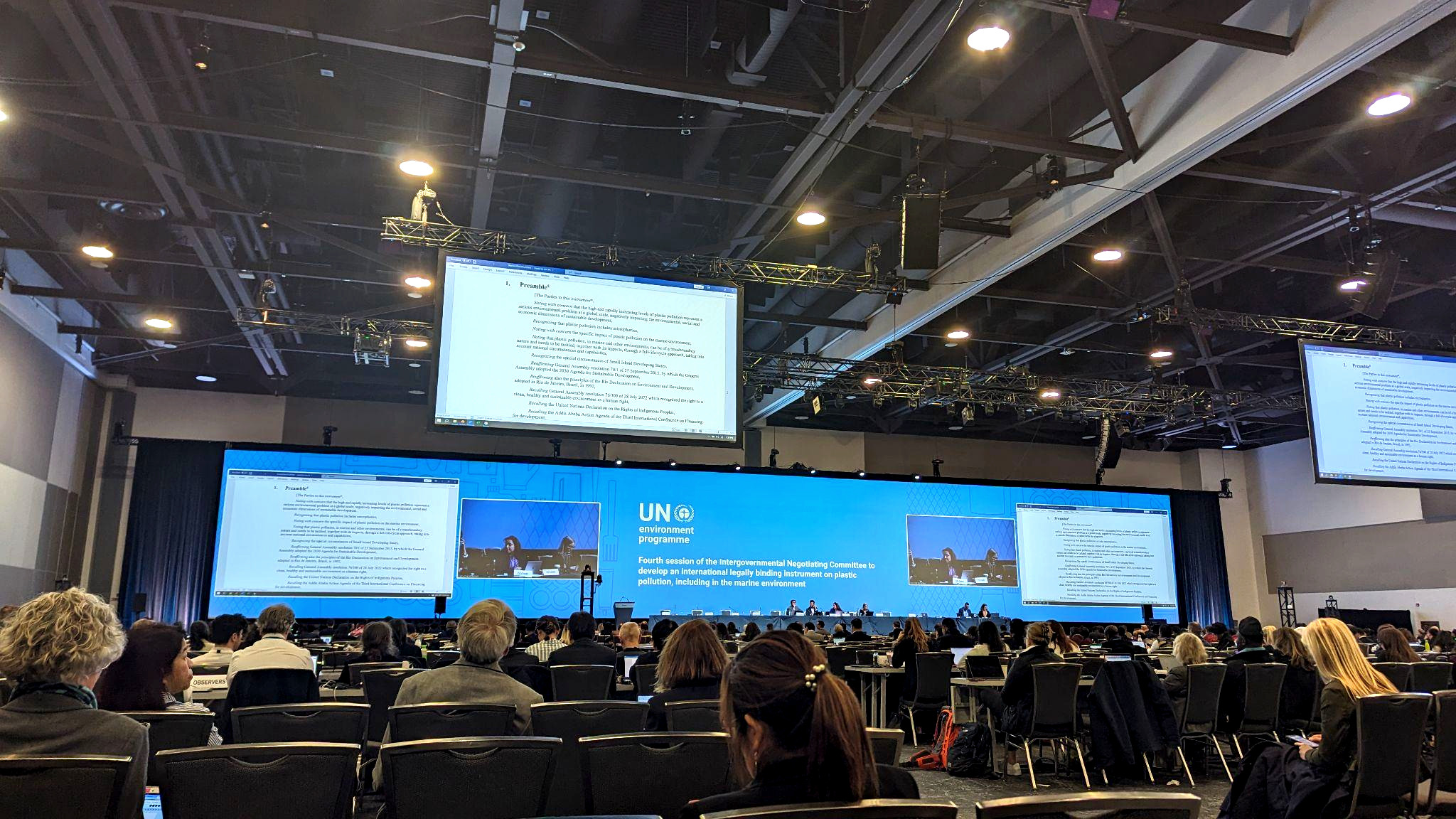
On days two and three of talks, delegates clash over the merits of mandatory vs voluntary extended producer responsibility, and does the “full life cycle of plastic” refer to the full life cycle of plastic or just the downstream phase? Sam Winton explains how these issues hark back to established rivalries between high and low ambition groups and looks for a way forward for the negotiations.
After moving quickly to Contact Groups on the evening of day 1, the committee at INC-4 has spent a little over 2 days of negotiation time concentrating on substantive measures. This has been an intensive period of negotiations with discussions extending well past 10pm for the last 3 evenings. These nights are only likely to get longer as we go deeper into the week. As indicated in my last update, I have spent this time following the progress of Contact Group 1 which is covering parts I & II of the revised Draft Text dealing with the introductory sections as well as the primary provisions. While my intention in these blogs is to focus on the main progress and challenges of the negotiations, I believe it is important to also briefly explain how the negotiations are being conducted:
The structure of negotiations has now become fairly complex and is explained in the flowchart below. More detail is contained in this document.

At the commencement of Contact Group 1, it was clear that, prior to substantive negotiations commencing, the revised Draft Text would benefit from a significant streamlining exercise. While several provisions in the text had up to 15 options for their wording, many of these options were substantially similar in structure and content, and could be merged so that most provisions have no more than 3 or 4 options. Therefore the co-chairs of Contact Group 1 commenced deliberations by seeking member’s views on the best way forward in this exercise. After a lengthy deliberation over the evening of day 1 and the morning of day 2, the committee agreed to the co-chairs proposal for a 2 step approach to streamlining the text:p { margin-bottom: 0.25cm; line-height: 115%; background: transparent }a:link { color: #000080; so-language: zxx; text-decoration: underline } At the commencement of Contact Group 1, it was clear that, prior to substantive negotiations commencing, the <a href=”https://wedocs.unep.org/bitstream/handle/20.500.11822/44526/RevisedZeroDraftText.pdf”><font color=”#1155cc”><u>revised Draft Text</u></font></a> would benefit from a significant streamlining exercise. While several provisions in the text had up to 15 options for their wording, many of these options were substantially similar in structure and content, and could be merged so that most provisions have no more than 3 or 4 options. Therefore the co-chairs of Contact Group 1 commenced deliberations by seeking member’s views on the best way forward in this exercise. After a lengthy deliberation over the evening of day 1 and the morning of day 2, the committee agreed to the co-chairs proposal for a 2 step approach to streamlining the text:
The co-chairs of the contact group, along with the co-facilitators of each subgroup would conduct a ‘technical streamlining’ of the text. This exercise is a simple restructuring of the document using brackets with all member’s views remaining in the text. This has now been completed and the new text can be found on the INC-4 website here.
Subsequently, the streamlined text would be put to members for high level deliberations in the subgroups. After each provision has been discussed the co-chairs and co-facilitators are expected to conduct ‘substantive streamlining’ taking into account the views that members express in their deliberations. At this point substantive changes to the text are anticipated.
After this streamlining has been conducted, revised text will be forwarded to members for detailed line by line negotiations. It is not yet clear whether we will reach this stage at INC-4, or whether it will occur at INC-5 in Busan.

Substantive textual discussions commence in subgroup 1.1 with members giving their views on the preamble (Photo: Sam Winton)
Moving onto the substance of the discussions, a number of key narratives are becoming clear. There are a large number of deep points of division among members and several provisions in part II of the revised Draft Text are extremely challenging. While I cannot address all of the provisions which have been discussed in this blog, there are a few sections/provisions for which conversations have been particularly interesting. In accordance with INC rules I will not be naming any members or groups of members when referring to contact group or subgroup discussions.
- There is almost unanimous support for the scope of the treaty to reflect UNEA resolution 5/14 ‘to end plastic pollution … [by developing] an international legally binding instrument on plastic pollution, including in the marine environment … based on a comprehensive approach that addresses the full life cycle of plastic’. However, as I have previously noted, there is deep division among members over what constitutes the ‘full life cycle of plastic’ with a coalition of members seeking to limit the life cycle to purely downstream measures such as waste management. Notably this same coalition wishes to delay any conversation of definitions until later in the process. Not defining the ‘full lifecycle of plastic’ until the final days of the process leaves a significant risk that, even if good work is done to create strong provisions, the scope of the treaty could become extremely limited as the process runs out of time at INC-5.
- In the opening session of the contact group, a well organised coalition of members rejected part II Provision 1 (Primary plastic polymers), Provision 2 (Chemicals and polymers of concern), and Provision 3 (Problematic and avoidable plastic products) outright, with one member stating that they see no possibility of convergence on these provisions and they should be omitted. These provisions contain vital upstream measures which would limit the production of plastics, particularly those which are most harmful, and it is deeply concerning, though not surprising, to see such a strong rejection at this point.
- There are a number of provisions which one or more members have stated they are not yet willing to discuss as we are currently too early in the process. While some topics clearly need to be finalised once other provisions are decided, we cannot leave everything until the last minute. By my count, of the 21 provisions on the table for discussion in Contact Group 1, at least 8 have been suggested as items to be delayed to INC-5.
- Part II Provision 7 (Extended producer responsibility (EPR)) will be an extremely challenging provision to reach a consensus on. While many members are broadly supportive of this measure, there is significant divergence on whether this should be mandatory or voluntary and whether EPR schemes should be designed nationally or harmonised globally. On the latter point, many members with existing EPR schemes argue that they should not have to rewrite a scheme which is already working well to conform to harmonised rules. There are also several members who reject EPR schemes outright. My sense is that language which encourages (not mandates) members to implement EPR schemes which are nationally determined, with an annexe which sets out suggested harmonised principles for EPR, is likely to receive a consensus. However this is far less ambitious than many members would choose and would leave the biggest polluters free not to implement EPR. It would also fall notably short of what the Business Coalition for a Global Plastics Treaty are calling for, allowing businesses in countries with strong EPR schemes to be undercut by foreign competitors in countries with no EPR.
On a practical note, It is impossible to reflect on the first days of Contact Group 1 discussions without noting some significant organisational and technical issues which have delayed negotiations. From the outset there has been a general confusion in contact groups and subgroups about the intended topic of discussions at certain points, leading to several circular conversations. While the INCs are a member driven process, conversations with such a large group require clear direction which has at times been lacking. To date there has been a high degree of well earned trust shown by members to co-chairs and co-facilitators and I would suggest that this allows them the latitude to provide a slightly firmer hand to direct the conversation productively, while of course being ready to respond to members if any dissension occurs.
Contact Group 1 has also been plagued by technical difficulties, with audio issues leading to multiple changes of room throughout days 1 and 2 causing significant lost time, WiFi issues in the building causing significant challenges to delegates, and reported issues with the UNEP web servers delaying the upload of streamlined text. Indeed, much of day 2 was a case of ‘hurry up and wait’ as delegates watched the live schedule for updates on significantly delayed sessions. There has also been a lack of clear communication from the secretariat on a planned schedule, both for the current day and the week as a whole, an issue which was not present at INC-3 and which is causing members difficulties when planning their workloads. While all delegates will be sympathetic to the challenges of organising such a large event, there is no time to waste and these issues need to be addressed to avoid further lost time at INC-4.
Moving forward, the current schedule appears to indicate that there will be a stocktaking plenary session tomorrow evening. If this does occur I will break from my planned alternate day reporting schedule and report back tomorrow as this will be my first opportunity to catch up with the events of Contact Group 2. From discussions in the corridors, this contact group appears to be progressing in a smoother fashion and I look forward to seeing the progress they have achieved.
BIO
I am a postgraduate researcher working for the Revolution Plastics Institute at the University of Portsmouth since its creation in 2020. In 2023 I commenced my PhD studies titled ‘To what extent has the structure and implementation of the INC process facilitated the development of an effective Global Plastics Treaty?’ at the University of Portsmouth and the University of Surrey. This research will focus on how the structure and implementation of the INC process impacts the treaty’s outcome, consider how the inclusion of stakeholders in the process influences a fair and just treaty, and investigate the implications of the final text for members. With a background in environmental hazards and community preparedness, my main research focus is working with communities and a broad range of stakeholders to tackle environmental challenges. I have also conducted work with international organisations with a view to creating policies to tackle the global plastics problem, and facilitate sustainable development.
